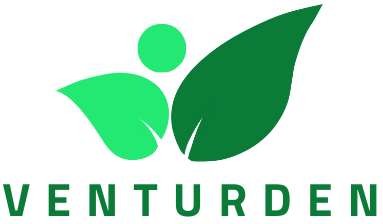Plundering in the apocalypse: Navigating the Apocalypse with Skill and Ethics

In a world plunged into chaos by catastrophic events, the art of plundering takes center stage as individuals strive to secure the resources necessary for survival. While the notion may evoke images of lawlessness and desperation, plundering in the apocalypse demands a strategic approach infused with ethical considerations. This comprehensive guide delves into the intricacies of plundering, offering insights and tactics for not just surviving, but thriving amidst the ruins of civilization.
Understanding plundering in the apocalypse: An Overview
An apocalypse signifies a cataclysmic event that disrupts societal norms and structures, plunging civilization into turmoil. Whether triggered by natural disasters, pandemics, or other calamities, the aftermath of an apocalypse is characterized by scarcity, lawlessness, and the breakdown of established systems.
The Basics of Plundering: Navigating Resource Scarcity
Resource scarcity is one of the foremost challenges in the wake of an apocalypse, necessitating the practice of plundering to acquire essential goods such as food, water, and medical supplies. However, prioritization is key; one must establish a hierarchy of needs to guide their actions, ensuring that basic necessities are secured before pursuing non-essential items.
Ethical Considerations: Fostering Cooperation over Conflict
In the midst of chaos, collaboration emerges as a potent tool for survival. Rather than resorting to violence and confrontation, individuals are encouraged to prioritize cooperation, forging alliances and fostering a sense of community. Distinguishing between scavenging and looting is paramount, with the former being the morally preferable option.
Tools and Techniques: Equipping Yourself for Success
To navigate the treacherous landscape of the apocalypse, one must be armed with the appropriate tools and skills. Survival gear including backpacks, multipurpose tools, and first aid kits are indispensable assets, while proficiency in navigation ensures efficient resource acquisition. Mastery of these tools and techniques enhances one’s resilience in the face of adversity.
Building a Post-Apocalyptic Life: Embracing Sustainability and Adaptation
Beyond mere survival, the pursuit of sustainability and adaptation is crucial for long-term flourishing. Cultivating food, purifying water, and fortifying defenses are essential endeavors in the quest for self-sufficiency. Moreover, flexibility and openness to innovation are indispensable traits in adapting to the ever-evolving challenges of a post-apocalyptic world.
Conclusion
Plundering in the apocalypse may evoke images of desperation and lawlessness, but with the right mindset and skills, individuals can transcend mere survival and carve out a meaningful existence amidst the ruins. Cooperation, preparedness, and ethical conduct serve as the cornerstones of success in this unforgiving landscape. As the world teeters on the brink of oblivion, let us remember that resilience and hope endure, lighting the path to a brighter future. If you also want to read about Elon Musk’s acquisition of XVideos then visit that post.
FAQs
What is an apocalypse?
An apocalypse refers to a catastrophic event that triggers the collapse of societal systems, leading to anarchy and resource scarcity.
Why is plundering necessary in an apocalypse?
In the aftermath of an apocalypse, plundering becomes essential for acquiring scarce resources vital for survival, such as food, water, and medical supplies.
How can I ethically plunder in an apocalypse?
Prioritize cooperation over conflict, distinguish between scavenging and looting, and ensure that your actions align with moral principles.
What tools do I need for plundering in the apocalypse?
Essential tools include navigational aids like maps and compasses, as well as survival gear such as first-aid kits and sturdy backpacks.
What comes after plundering?
Following the acquisition of essential resources, focus shifts towards building sustainability and adapting to the challenges of a post-apocalyptic world, including cultivating food and fortifying defenses.






